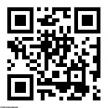如何用英文准确报道体育项目的进展

To accurately report on the progress of a sports event in English, follow these steps:
1. Title and Headline: Start with a clear and concise title that sums up the main point of the report. The headline should be attentiongrabbing and informative.
2. Introduction: Begin with a brief introduction that sets the stage for the event. Mention the date, location, teams or athletes involved, and any significant background information.
3. Key Events: Describe the key events of the game or match. This includes goals, points, important plays, and any notable achievements or performances.
4. Quotes: Include quotes from coaches, players, or officials to provide insight and perspective on the event. Ensure the quotes are accurate and relevant to the story.
5. Stats: Provide relevant statistics such as scores, player performance metrics, and any records set or broken during the event.
6. Analysis: Offer analysis of the game, including strategies used, player performance, and any turning points that influenced the outcome.
7. Conclusion: Summarize the event, mention the final score or result, and provide a brief outlook on the future implications for the teams or athletes involved.
8. Proofreading: Always proofread your report for grammar, punctuation, and accuracy before submitting or publishing.
Remember to use clear, concise language and avoid jargon that may not be understood by all readers. Maintain a neutral tone and focus on the facts of the event.Ah, the thrill of sports! Whether you're a seasoned athlete or a casual observer, keeping up with the latest in your favorite sport is crucial. But how do you ensure that you're not just catching the highlights, but truly understanding the nuances of the game? Let's dive into the art of how to use English to accurately report the progress of sports events.
The Language of the Game: Navigating Sports Jargon
Sports have their own language, a veritable lexicon of terms that can be both intimidating and fascinating. To report on sports effectively, you need to be fluent in this language. Here's how:
Master the Lingo: Familiarize yourself with terms like \goal-line technology,\ \fast break,\ or \power play.\ These are the building blocks of sports reporting.
Use Contextual Clues: When in doubt, rely on the context. If you're reporting on a soccer match, for instance, \goal-line technology\ will make more sense than \quarterback sneak.\
The Numbers Game: Reporting Scores and Statistics
Numbers are the heart of sports reporting. They tell the story of the game and provide a clear picture of who's winning and why.
Be Precise: When reporting scores, always use the exact numbers. For example, \The Lakers defeated the Clippers 123-112\ is more precise than \The Lakers beat the Clippers by 11 points.\
Highlight Key Statistics: Not every stat is important. Focus on the ones that matter, like \LeBron James tallied 40 points, 10 rebounds, and 8 assists in the victory.\
The Visual Element: Describing Actions and Plays
Sports are as much about what you see as what you hear. A good sports report should paint a picture of the action.
Use Descriptive Language: Instead of just saying \The player scored,\ describe the moment: \With a swift move to his left, the player evaded his defender and buried a fadeaway jumper for the go-ahead basket.\
Incorporate Analogies: Sometimes, a good analogy can bring a play to life: \The quarterback's pass was like a bullet, zipping through the air and finding its mark in the receiver's hands.\
The Human Element: Telling the Story of the Athletes
Sports are about the people who play them. A great sports report connects the reader to the athletes.
Interview Sources: Speak with coaches, players, and fans to get a well-rounded perspective.
Share Personal Stories: Sometimes, a player's background or a fan's passion can add depth to your report.
The Global Stage: Reporting on International Sports
Sports are a universal language, but reporting on international events requires a bit of extra effort.
Understand Cultural Differences: Different sports are popular in different countries. For example, cricket is huge in India, while soccer is the game of choice in Brazil.
Research Local Terminology: Learn the local terms for teams, players, and events to ensure accuracy.
The Digital Age: Reporting in the Digital World
With the rise of digital media, sports reporting has evolved. Here's how to adapt:
Use Multimedia: Incorporate videos, photos, and graphics to make your report more engaging.
Engage with Your Audience: Use social media to interact with readers and provide real-time updates.
The Future of Sports Reporting: Keeping Up with Technology
Technology is changing the way we report on sports. Here are a few trends to watch:
Virtual Reality: Imagine watching a game through the eyes of a player using virtual reality.
Artificial Intelligence: AI can help analyze data and provide insights that were once impossible.
In conclusion, reporting on sports in English requires a blend of knowledge, skill, and passion. By mastering the language of the game, focusing on the numbers, describing the action, telling the story of the athletes, understanding the global stage, embracing the digital age, and keeping up with technology, you'll be well on your way to becoming a top-notch sports reporter. So, grab your notebook, tune in to the game, and start writing!












 关闭返回
关闭返回